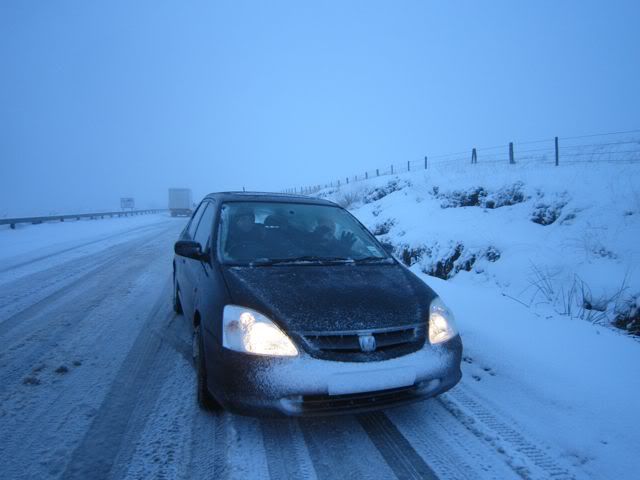[quote=“sulavaca”][quote=“Ducked”]Yeh, but if you remember, you aren’t that convinced that 4WD is necessary (see above)…
Two wheel drive, yes. Certainly not at the rear wheels though if it were my choice. I think those with any experience of the two will understand. Its far easier to steer in slippery situations with front wheel drive. Its generally much easier to control traction too.[/quote][/quote]
Well, you’d be wrong in my case. I’ve got some experience of the two, and I don’t understand.
I started driving relatively late in life, and have only owned 13 vehicles, 5 FWD and 8 RWD, roughly alternating up to the present. Admittedly I’m not very expert and I havn’t driven in slippery conditions beyond what one generally encounters in a Scottish winter.
I could see, theoretically and maybe practically, that steering might be easier with FWD, because the wheels are pulling you the way you want to go. OTOH having the same wheels doing the steering and the pulling seems more likely to exceed the limits of adhesion.
Traction is often stated to be better in a FWD because the weight is over the driven wheels, but I think this uneven weight distribution is a very mixed blessing. The only two times I’ve lost control of a 4-wheeled vehicle were in a FWD entering a slippery descending turn in gear. I THINK what happened was that as I lifted off, the engine braking transferred even more of the weight forward, and the already light rear end came unstuck. In the first case, in the UK, the Metro spun 180 degrees, mounted a bank and went through a hedge backwards, probably the best way to go through a hedge. In the second case, here, the rear of the Skywing swung out into the busy opposite lane but I was able to pull it back in line without hitting anything. I can’t be sure this wouldn’t have happened with RWD, but it never has, to me, and I’ve done more miles on RWD.
In any case, even if traction is superior on FWD (and I find that intuitively a little hard to believe for a steep hill climb, for example), traction control is a separate issue. I can’t see any way to control the traction on a normal FWD, because, when they start to slip, there is no traction to control. On RWD some control is available via the conventional handbrake.
If “smart” traction control systems are fitted, then that will obscure this difference, and maybe FWD will come out ahead, but, for the basic systems, my limited experience is that RWD is superior in slippery conditions.

